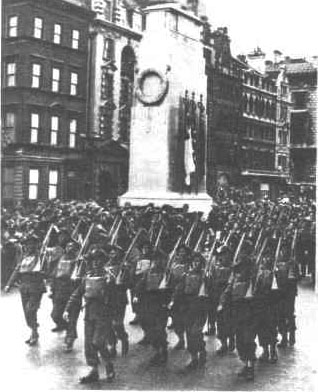
During the Second World War, several million foreign servicemen and -women were stationed in Britain for varying periods of time. These included many Australians, for most of whom it was their first glimpse of Britain.1 In 1940, one of them described his impressions of the mother country in an article for the Spectator entitled “An Anzac on England”. His name was Sydney Melbourne (although for some reason I strongly suspect this was a pseudonym), and he was probably serving with one of the Australian Army units diverted to Britain after the fall of France.2 So to mark Anzac Day, and this being a British history blog, here’s what one wide-eyed colonial had to say about Pommyland. And it mostly wasn’t flattering!
The first thing which struck him was the shocking waste of good farming land.
Why is so much land that is obviously fertile lying idle in farms of 1,000 acres and even larger? Why are so many patches of scrub and useless bushes left uncleared? We [Australians] can respect good timber — that is always an asset — but stunted copses and brambles are an eyesore which no good farmer should tolerate a day longer than he can help.3
According to Sydney, in the Antipodes (he fraternally provided some examples from New Zealand) settlers fought hard to cultivate land much more marginal than that which was left unused in Britain, and despite droughts and fires exported their produce overseas and made a good living. He praised Hitler’s agrarian policy, which utilised German land more fully and reduced the need for imports, and was puzzled that the British preferred the picturesque over the productive, `the dangerous result of a short-sighted policy […] beauty will not feed a nation’s workers (or employ them), and in these times efficiency is a more valuable asset than is scenery’. There’s no question that Britain in 1940 was underutilising its land, since during the war it made strenuous efforts to increase the area under cultivation, so as to reduce the need for imports (and hence vulnerability to U-boats). But from the perspective of 2007, in the middle (or, hopefully, near the end) of the worst drought on record, it seems strange to boast of how intensely Australia uses even marginal land: it’s precisely this sort of behaviour that has landed us in the current fine mess.
Syd was also disappointed in the Metropolis itself:
An Australian comes from Sydney’s busy streets and modern buildings expecting to find London, the heart of the Empire, a modern and efficient city. And his actual impression of London: dirt, dirt everywhere. Shabby, broken-down old houses and fewer modern buildings in the whole city than he would see in Sydney’s Pitt Street alone. He finds a people with no civic pride in their city, a people who tolerate inefficiency.
He did make some allowances for the fact that there was a war on, but didn’t think things would be much better in peace-time. But I doubt he could have gotten away with disparaging the civic pride of Londoners even a week later: the Blitz had just begun, and keeping the city running was one way of sticking it to Hitler. That wouldn’t have gone down too well at all. (Not that they didn’t complain themselves, mind you, when things weren’t working.)
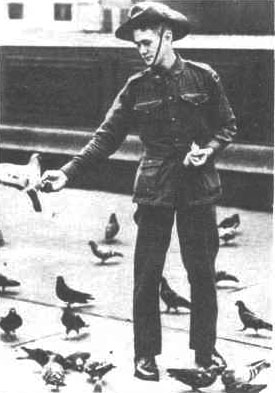
The English sheilas were apparently a bit of a shock to the system:
He [the Australian] is used to “rough joints” in Sydney. But he has never had to push his way to a public bar through a crowd of women. It is a new experience to stand shoulder to shoulder with women while buying a glass of beer. And he has not yet got accustomed to the spectacle of women smoking in a public place, a street or an omnibus.
Strewth! The Australian woman was among the first in the world to get the vote, but apparently did not feel free to indulge in the vices enjoyed by the average Australian man. That has changed dramatically since 1940, or least male levels of indulgence have dropped to close to female levels, at least for smoking.
Part of the dirtiness which offended our Anzac (and from the sounds of it, quite a few others) was the prevalence of venereal disease:
He finds the people careless and dirty, and venereal disease prevalent, and beyond a few notices in public conveniences he has found little attempt to combat the last evil. People ask him if it is true that there are licensed brothels in Queensland, and seem horrified to learn that such things are tolerated. Yet venereal disease is not rampant in Australia.
Well, that much hasn’t changed — there are still licensed brothels in Queensland (though I’m not sure if they’ve been legal for the whole period since 1940); most other states in Australia have something similar; and British laws are still less tolerant of prostitution than Australian ones. I do wonder how exactly he found venereal diseases to be so prevalent, though …
Mr Melbourne also remarked upon the numbers of evidently very poor children he saw in the industrial towns of the Midlands, and the low pay of Tommy Atkins (to whom he ‘dips his lid’), both of which he contrasted unfavourably with the Australian case. But he did at least close with some positive words about Britain:
There are also other things which he will not forget — the hospitality he has received, the calmness of the civilians in areas which have been subjected to constant air-attacks, and the tremendous improvement in the output of war-material and munitions which has been apparent since he first came to England. He knows that England will eventually prevail in the struggle, but he looks in vain for the man who will rebuild the nation in the years to come.
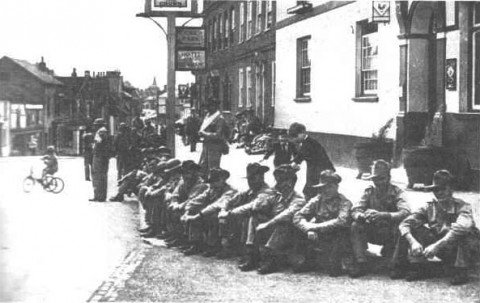
There were a number of responses to “An Anzac on England” in the Spectator’s correspondence columns, mostly rather defensive — including one by Alison Neilans, Secretary of the Association for Moral and Social Hygiene, who did not approve of Queensland’s licensed brothels at all. Another writer pointed out that Tommies were paid so poorly because the British people were bearing almost the entire cost of the war alone, against a nation with twice its populatation. Sydney Melbourne’s compatriot, Sydneysider, probably had the most amusingly snarky comment, calling him ‘the sort of mental clod-hopper the average Australian has little time for in Australia’, `the startled male equivalent of Alice in Wonderland’.4 But as I (hopefully) will be over there in Britain myself in a few months, I’ll be able to judge the accuracy of “An Anzac on England” for myself … or maybe things have changed in the last 67 years!
Image source: “Our troops in England”, Soldiering On: The Australian Army at Home and Overseas (Canberra: Australian War Memorial, 1942), 17. I have my grandparents’ copy, but luckily found an online version at Digger History 2, which saved me having to mash my fragile copy into the scanner. The original caption reads ‘Above: Australian troops marching past the cenotaph in Whitehall, London, and a Digger feeding pigeons in Trafalgar Square. Below: Men from Forestry and Railway units awaiting the order, “Fall in”.’
![]() This work is licensed under a Creative Commons Attribution-NonCommercial-NoDerivatives 4.0 International License.
Permissions beyond the scope of this license may be available at http://airminded.org/copyright/.
This work is licensed under a Creative Commons Attribution-NonCommercial-NoDerivatives 4.0 International License.
Permissions beyond the scope of this license may be available at http://airminded.org/copyright/.
- Including two members of my family. [↩]
- The main units were 18th Brigade and 25th Brigade, which at around this time were put together to form the bulk of 9th Division. [↩]
- Sydney Melbourne, “An Anzac on England”, Spectator, 20 September 1940, 289. Unless otherwise specified, all quotations are from this source. [↩]
- Sydneysider, Spectator, 4 October 1940, 340. [↩]


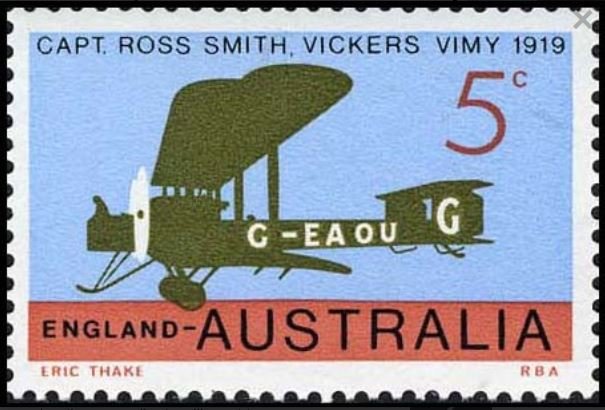

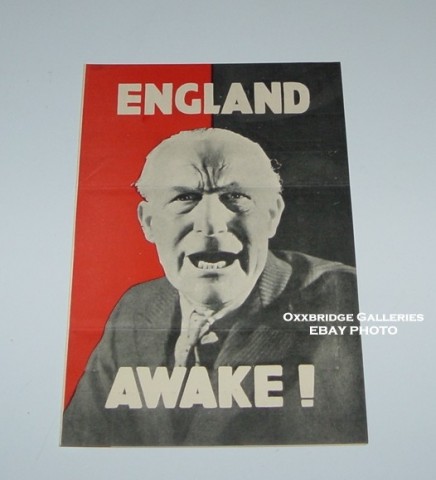
Pingback: Views of Australia old and new - Philobiblon
Pingback: Club Troppo » Missing Link - Anzac Day Special Edition
Pingback: ClioWeb » Archive » History Carnival 52
Pingback: Joe’s Pick of Carnival #52 | History Now
Pingback: Airminded · Straight to the pool room
i ask if england has anzac day as i am from england and never aerd of anzacs in england
This may have come too late to be of any use to you, but the answer is no :)
“i ask if england has anzac day as i am from england and never aerd of anzacs in england”
There are occasional local memorial events in the UK on ANZAC Day, to commemorate ANZAC activities there, such as at Leighterton, where there was a large training base. However ANZAC Day is an official public holiday in Australia and New Zealand, and not in the UK, so it is never an official UK holiday or commemoration.
HTH.
Pingback: Airminded · Friday, 20 September 1940
With regard to shouldering the sheilas aside in order to get to the bar – as I’m only an ignorant pom – wasn’t it the case that it was actually illegal for women to enter many Australian pubs until relatively recently?
No, I don’t think it was ever illegal, just a (near?) universal custom. And they could actually enter pubs, but only one part of it, the saloon bar (a bit pricier but noicer for the ladies). The so-called public bar was the bigger part of the pub, rougher and rowdier and men-only. Seems that this distinction only began to break down in the 1970s. Actually a lot of pubs still have the two bars, but there’s no gender discrimination now.
In our defence, women have had the vote here since Federation in 1901…
There was much the same distinction in a lot of English pubs, between the public and the saloon or lounge bars. But sometimes (memory may be serving me false here) it could be between the saloon and the lounge. Prices were different too. Whether there was ever any gender discrimination I don’t know, but there was certainly social discrimination. Or, to put a more positive spin on it, your were more likely to find your sort of people in the one or the other.
Again, the vestiges remain, though the price differentials don’t.
I wonder how and why the no-women thing started. I mean, given the male propensity to ply females with alcohol it seems a bit unnatural. Perhaps it was a wowser victory? Melissa Bellanta would know…